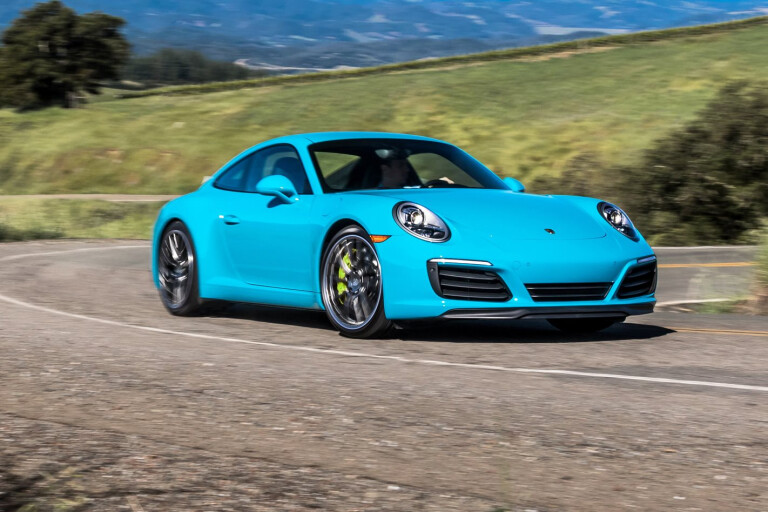
AFTER years of speculation and un-corroborated reports, Porsche has finally confirmed its iconic 911 sportscar will be offered as a plug-in hybrid as early as 2020.
Until now, the German car maker has avoided talking specifically about the idea of a hybrid 911, stating simply that it would ultimately offer an electrified version of all its cars. But Porsche’s top executive has now gone on record about its hybridisation plans for the iconic sportscar.
Speaking to Wheels at the Los Angeles Motor Show, Porsche chief executive Oliver Blume said the next-generation 911 platform, due to arrive next year, had been engineered for a hybrid drivetrain and the first variant would follow the more conventional versions within about two years.
“Next year we will come with the new 911 and our platform permits to introduce plug-in hybrid, but in the first step we won’t do it,” he said. “We will do it a bit later.
“We haven’t decided yet which year it will come after the presentation next year - 2020 or 2021, we haven’t decided.”
When asked if the electrified 911 would represent the performance flagship for the range, Blume relied “Yes, we should do that”, repeating the strategy of the Panamera Turbo S E-Hybrid that arrived as the most potent version of the large sedan range this year.
“In Europe alone we have a take rate of 50 percent of plug-in hybrid in Panamera and our customers love the combination of E-Performance and combustion engines like we do in motorsports.”
Whether the new PHEV version would usurp performance of hardcore motorsport-developed GT cars, Blume said that decision was still under discussion as they were “different cars”.
“Especially for the 911, we will continue with the turbo engines for the GT2 RS and GT3, and which level we will go with the hybrid isn’t decided yet, but it has to be a very sporty one.
While the battery technology present under the larger and heavier Cayenne and Panamera is adequate for a circa-50km range, Blume said a hybrid 911 would introduce the next evolution in battery technology, a move necessary to minimise weight while providing a similar pure EV range.
“They [the batteries] need to be very powerful, therefore we waiting for the next generation," he said. "For Panamera and Cayenne it’s enough because we are going for a distance of 50km full-electric, but with less space you need a more powerful battery.”
Ultimately, the smaller Boxster and Cayman siblings would gain similar hybridisation but at a point most likely after the 911, said Blume.
“We work on the next generation of the Boxster and think about what car should it be and from my point of view, we will bring, because of the space in the car, the 911 first and then think what will happen with the Boxster.”
A range-wide hybridisation strategy addresses increasingly tight US corporate average fuel economy and emissions standards, but Blume explained the PHEV roll-out was primarily in the name of driving enjoyment.
“It’s our responsibility for sustainability on the one hand but on the other hand, electromobility fits perfectly with Porsche. We carry a lot over from motorsports - we won the last three Le Mans 24 hours with a plug-in hybrid.
“Everything we do in the future with electromobility will be a true Porsche”.



COMMENTS